Hydrocarbon Solvents
Sunday, March 13, 2011
When I was a project/chemical engineer working in the oil and gas industry 6 years ago, one of my critical tasks is to manage the specialty chemical matters. This is an area which requires a person with chemistry or chemical engineering background. I was fortunate because the company I worked with is attached with a well known and established international specialty chemical manufacturer. Hence, I learned a lot of chemicals and its formulation from the principal company. There are various specialty chemicals available for numerous industrial applications such as corrosion inhibitors, degreaser, scale inhibitors, descaler, deoiler and others. Among the chemicals that I frequently handled is the corrosion inhibitor. The corrosion inhibitor is used in the internal pipeline chemical cleaning project awarded to us to lengthen the lifespan of the gas  and condensate pipelines from corrosion threat. The corrosion inhibitor concentrate, which comes in drums of 200 liters will be then blended with either water or hydrocarbon solvents to the desired concentration. The chemical blending was made on-site by the staffs. After the blending is completed, I will check the final corrosion inhibitor blending via bottle and emulsion test. Blending the chemical using water is not as complicated as using hydrocarbon solvents.
and condensate pipelines from corrosion threat. The corrosion inhibitor concentrate, which comes in drums of 200 liters will be then blended with either water or hydrocarbon solvents to the desired concentration. The chemical blending was made on-site by the staffs. After the blending is completed, I will check the final corrosion inhibitor blending via bottle and emulsion test. Blending the chemical using water is not as complicated as using hydrocarbon solvents.
When blending using hydrocarbon solvent, I need to identify which solvent best suits the chemical. I also need to consider the economic as well as the safety aspect. Hence, for me, there is an importance to know about hydrocarbon solvents. One way to learn about it is from the material safety data sheet (MSDS). Besides that, I also always refer to the notes and my principal for further explanation or analysis.
Basically, there is a wide range of hydrocarbon solvents which include aliphatics, paraffins, aromatics, blends, mineral spirits and others. There are also daily used items that relies on hydrocarbon solvents such as adhesives & sealants, paints & coatings, dry cleaning fluids, insecticides, edible oils and tyres. A simple and common example is when we mix kerosene into the paint concentrate when we paint the walls of our house. Kerosene is one type of popular hydrocarbons, which is also the fuel for aeroplanes.
On top of that, other application of hydrocarbon solvent includes cleaning or dissolving water-insoluble substances such as greases and oils. Due to their high toxicity and persistence in nature, their use in industrial processes is restricted. The solvent must also be stored safely in a dry cool shady place and well ventilated area, far from heat and sunlight. This is to avoid them reaching their flash points which may lead to possible explosion.
It was really nice experience learning and being exposed to the specialty chemicals and various hydrocarbon solvents. It is indeed a huge market and a profitable area to be in. Don't you think so?
Labels: Chemical, Chemistry, Environmental, hydrocarbon solvents, Learning Curve, Oil and Gas
posted by Kipas Repair JB @ 12:43 AM,
,
![]()
Chemical Engineering Chat Via Facebook
Tuesday, November 09, 2010
OKN, you know who you are. I hope you are all right that I share our informative chat here for the sake of other chemical engineering students. I have edited/improved some of the sentences to make it clearer for you to read. Check it out...
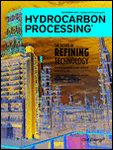 OKN - 5:26pm: Good morning. How are you?
OKN - 5:26pm: Good morning. How are you?Zaki - 5:26pm: Hi, fine thanks
OKN - 5:26pm: Cool
Zaki - 5:27pm: :)
OKN - 5:27pm: What are you working on right now
Zaki - 5:27pm: I'm testing my new temperature controller. Looks like it works fine... ;)
OKN - 5:28pm: Nice work. On what field do u specifically base on?
Zaki - 5:28pm: Catalysis and reaction engineering. Trying to convert glycerol to some useful product.
OKN - 5:30pm: I am a chemical engineer but still in school my final year.
Zaki - 5:31pm: Oh! That's cool. Good luck to you.
OKN - 5:31pm: What advise do u have for me on my futher studies?
Zaki - 5:37pm: Choose which field you are interested in. Get a good supervisor whom have lots of research grant/money. Explore the area of renewable energy.
OKN - 5:38pm: But u can serve as my supervisor...since we study related course
Zaki - 5:39pm: Hmmm... I'm still doing my Ph.D. Maybe later, after I complete my Ph.D I can be your supervisor. Hahaha...
OKN - 5:40pm: U really inspire me a lot....u start now cos i really appreciate the little u have
Zaki - 5:40pm: Oh... Thanks... But what do mean by start now?
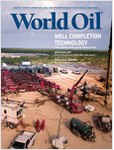 OKN - 5:41pm: While still doing ur phd. I am seriously confuse of my field.
OKN - 5:41pm: While still doing ur phd. I am seriously confuse of my field.Zaki - 5:42pm: O ok. So, what is your interest?
OKN - 5:42pm: I am seeing it as if i have waisted my time studying chemical eng.
Zaki - 5:42pm: Oh no. You are doing great. You just need somebody to help and guide you show the way...
OKN - 5:43pm: I am tinking of going into oil sector but i think i nid advise from someone to put me back in my field cos i rily want to be self dependent.
Zaki - 5:44pm: Oil and gas is lucrative sector. If you can be an expert in certain areas in the oil and gas, that's fantastic. Work with somebody, and then after few years, build your own company.
OKN - 5:46pm: But i have no much knowledge about dat sector,if u can help me i will appreciate
Zaki - 5:46pm: Oh... maybe you can be an expert in specialty chemical for offshore oil and gas application. Since you are a chemical engineer, that suits quite well. Try and google what is specialty chemical.
OKN - 5:47pm: It's ok. I will do dat.
Zaki - 5:48pm: You can also try to cover some other areas such as safety and health, as well as maintenance, or process engineering for oil and gas application or corrosion aspect or NDT.
OKN - 5:54pm: What suggestion of field of chemical eng. Do have for me to study for my masters degree.
 Zaki - 5:54pm: OK ... another interesting and lucrative area is safety, health and environmental
Zaki - 5:54pm: OK ... another interesting and lucrative area is safety, health and environmentalIf you focus on some specific areas under environmental...that will be good as well. People expert in environmentals make lots of money.
OKN - 5:58pm: So u mean i shud study environmental as a course.
Zaki: 5:58pm: Yep... Maybe you can also study some specific areas under environmental...such as Water, Air, Safety etc. Once you be an expert, example: Water expert, those who are concern with water impact, environmental will seek for your advise etc. Maybe they want to analyze water river etc.
OKN: 6:01pm: In drilling, guess i will be of more relevance.....how?
7:48pm: Yes. Drilling is relevant to you too. However, you need to learn more about it
that will be pretty much covered in Petroleum Engineering.
The chat ended because suddenly I have something coming up. I hope OKN got something from the short chat. Cheers...
..

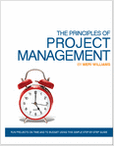


Have you downloaded my free "Choosing Alternative Fuel" Ebook? If not, then please download it here. It's Free and on top of getting the free ebook, you'll get eCourse on Alternative Fuel. It's a good and easy way to add more valuable information to yourself.
Labels: Chemical Engineer, Chemical Engineering, Environmental, Jobs, Oil and Fats, Oil and Gas
posted by Kipas Repair JB @ 8:13 PM,
,
![]()
Ethanol Production Industry
Wednesday, November 03, 2010
Do you know who is the largest ethanol producer in the world? America? Some country in Europe? South Africa? It actually depends on the geographical area that you are speaking about. Let's check out who they are...
Largest ethanol producer in the world
Brazil is currently the world's leader in ethanol production. Because of government subsidies, large sugarcane crops, and high sales taxes on gasoline, Brazil has built a profitable national ethanol industry. Sugarcane is grown in the country as the climate presents perfect conditions for its cultivation and production. It converts very easily to ethanol, and provides Brazil with huge supplies of ethanol.
Largest producer of ethanol in the U.S.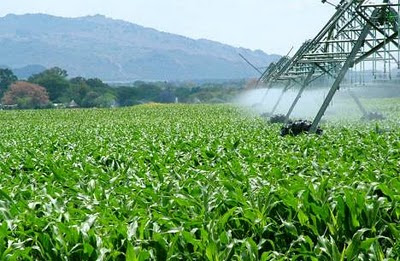
Hmmm... there are actually more to discuss and more to share about the Ethanol Producers. It's tough to share all those technical, economical and other related information about ethanol producers in a short
 blog post like this. To have a clearer and precise information sharing on ethanol business, I would like to recommend Ethanol Producer magazine.
blog post like this. To have a clearer and precise information sharing on ethanol business, I would like to recommend Ethanol Producer magazine.The magazine is known throughout the ethanol industry for its authoritative plant construction lists, compelling profiles and engaging features on production, research, science, technology, equipment, environmental and safety compliance, marketing, policy and industry events. Most importantly it is free... Yep..no cost at all. However, I'm sorry to say only those in US, Canada and Mexico is eligible to request for it.
To get the Ethanol Producer magazine, click here.
Labels: Biodiesel, Biofuel, Biotechnology, Energy, Oil and Fats, Oil and Gas
posted by Kipas Repair JB @ 11:26 PM,
,
![]()
Dubai Jobs - Tips and Strategies to Secure it
Tuesday, July 20, 2010
Now the question is...
if so many people are looking for an engineering job in Dubai, how do you ensure that you secure your "Dream" Job in Dubai? The answer is quite logical. You need to have a multi-pronged strategy and work really hard if you wish to secure your Dream Engineering Dubai Jobs. A callous or laid-back attitude will not generate the results you desire. Similarly, just 1 or 2 approaches will not work. I will show you a systematic and guided approach. If you follow this method, then I guarantee you phenomenal results. Now, I'm not going to teach you magic. Like I said earlier, it's a logical method.
Some of the popular and in-demand Engineering jobs in Dubai are:
* Mechanical Engineering which includes: Aerospace, Automotive, Biomedical, Mechanical, Naval.
* Electrical Engineering which includes: Communications, Computer, Electrical, Electromechanical Systems, Electronic Systems, Software.
* Civil Engineering which includes: Building, Civil, Construction.
* Production Engineering which includes: Industrial Engineering, Integrated / Unified Engineering, Production Engineering, Instrumentation Engineering, Systems Engineering
* Chemical Engineering which includes: Agricultural, Biological and Biosystems, Chemical, Environmental, Food, Forestry, Materials, Plastics, Water Resource.
* Oil Engineering which includes: Gas, Geological, Geomatics, Metallurgical, Mineral, Mining, Oil, Petroleum.
Remember, that the whole process that I have described below takes some time. Securing good Engineering jobs in Dubai that fit your criteria perfectly is a time consuming and lengthy procedure, but I have compiled a few resources here for you to make it easier.
So, follow this procedure in the order given below and...
...all the best to you in your new engineer jobs in Dubai:
Engineer a good Resume:
A resume that impresses, one that gets the interview call. It's said that the first impression is the last impression. Couldn't be more true for a resume.
Some Resume Tips, specifically for Engineering Jobs in Dubai:
* Put the most important information first
* Highlight your positive points and strengths
* Highlight your accomplishments/achievements/accolades
* Point out that you will dress modestly
* Put a line that you are very tolerant with other people's religion and beliefs
* Make sure to use the right keywords, (for online searches) power keywords that will bring your resume in front of others
* Use bullet points
* One or two pages long, maximum
* No hobbies please
Online Job Portals: are Very widely used by job seekers and recruiters.
You can submit your completed resume to these online job portals. They are extremely popular in Dubai, and are used by the HR executives of the biggest and best Engineering companies to search for good resumes.
Offline Recruitment Agencies: are also very useful. Some are General while there are some that Specialise in Engineering Jobs in Dubai. The Big general recruitment agencies have dedicated recruiters and teams for various career fields. It's a good idea to approach a mix of both types. These recruitment agencies have contracts with companies, and are very prolific in finding the right candidate for the right job. They get paid for every successful placement, by the hiring company.
Engineering Companies: You can directly approach the biggest and the best companies in the engineering sector. The creme de la creme of engineering comapnies always have job positions open due to the size and leadership in the market. You can send them your Resume and Cover Letter to the Human Resources Department'S Email ID.
Classified Ads: Circulate your ad on the Internet.
You can place your "job wanted" classified in one of the Online Dubai Classified Advertisement Websites "Engineering Jobs in Dubai" section. These are reputed sites, however, since your email address is listed here, please be ready to find spam in your inbox too. A safe bet is to use a different email ID. These classified sites rank very high (in the first or second search results page) and so your chances of getting found directly by hiring companies is very high too.
Classifieds Search: Search the Wanted Ads.
There is a "jobs available" section in some online classifieds sites. You can browse these to locate engineering jobs in Dubai that fit in with what you are hunting for. However, many of the ads could be of scam recruiters, asking you to deposit money upfront. Simply ignore these.
Social Media Networking:
Network with the HR's.The HR's of Companies as well as Recruitment Agencies use Social Networking to post current jobs online and informally connect with potential candidates. This is an absolute must-do.
Preparing for an Interview:
* Go prepared.
* When you receive an interview call, remember to take along all your original certificates, experience letters and other important documents in original and photocopies.
* Brush up on the technical aspects related to the work you do.
* Show them that you are an authority on your subject and the right candidate for that post.
Tips, Do's and Dont's:
* Keep in mind the things that made you search for engineering jobs in Dubai, in the first place.
* If the job description and it's package and perks offered, fit in with what you've got in mind, then and only then apply for the job.
* Negotiating salary is not recommended in Dubai.
* You may find yourself working overtime without overtime pay.
* South Asians, need to work a minimum of 1 year, before they can change jobs, whereas this rule does not apply to Europeans, Australians and US Nationals.
Visa to visit Dubai:
You can come to Dubai on a visit visa and then go job hunting for quality engineering jobs in Dubai, as many people do, which increases your chance of landing good construction jobs in Dubai.
Physical presence in Dubai does make a difference. You can go for the interview as soon as you get a call. Read the important tips about Dubai Visas and remember that a visit visa is for a duration of 2 months, and you can extend it by a month.
This post is contributed by Shabbir Kagalwala from www.dubai-forever.com. He provides valuable step-by-step guide to apply, search and secure Jobs in Dubai. Information loved by visitors, searching for their dream job in UAE. It will be useful for chemical engineers seeking for new job, new experience, new adventure.




Have you downloaded my free "Choosing Alternative Fuel" Ebook? If not, then please download it here. It's Free and on top of getting the free ebook, you'll get eCourse on Alternative Fuel. It's a good and easy way to add more valuable information to yourself.
Labels: Chemical Engineer, Chemical Engineering, Jobs, Oil and Fats, Oil and Gas
posted by Kipas Repair JB @ 6:51 PM,
,
![]()
Do I missed my previous job?
Sunday, June 13, 2010
Well, the answer is it depends. I don't want to be that type of engineer for the rest of my life. However, I want to be an engineer once in a while. Let say, maybe 3 months a year. Would that be possible? I'm not sure.
I am now finally in a position that I dream off years ago. I'm pursuing my Ph.D and working on to be a chartered engineer. It's not easy and it's certainly tough. With my present position, I can have better control of what I want to do. I enjoy writing, publishing my work, doing research, supervising students and teaching as well.
But, to be a more hands on engineer, I need to spend more time doing consultancy jobs. That will get me closer to the plant, refinery and industry which I missed very much. I missed the crude palm oil smell while I was working in Pasir Gudang. I missed the gas and condensate smell while I was a chemical engineer leading few projects in Kerteh, Trengganu. I also missed the adrenaline while sitting in the helicopter while traveling to several offshore platforms performing bottle test. To add some more, I missed the fantastic 5 star food that was serve in Petronas offshore rigs. The basic point is I missed those experiences.
I have made it a point, after I complete my doctorate degree, I'm going to allocate sometime doing some consultancy jobs that suit my knowledge, skill and experiences. I have identified an area I'm going to establish myself in. With that in mind, I hope I can get more and more industrial exposure. Besides gaining more experiences, I can also share them with my readers (of this blog).
-------------------------------------------------------------------


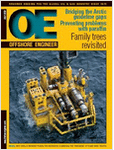

Have you downloaded my free "Choosing Alternative Fuel" Ebook? If not, then please download it here. It's Free and on top of getting the free ebook, you'll get eCourse on Alternative Fuel. It's a good and easy way to add more valuable information to yourself.
Labels: Chemical Engineer, Chemical Engineering, Environmental, Oil and Fats, Oil and Gas, pH.D, Plant Shutdown, Problem
posted by Kipas Repair JB @ 9:06 PM,
,
![]()
Steam-Heat Exchanger from Schlumberger
Sunday, March 07, 2010
Steam-Heat Exchanger is a product from Schlumberger which is useful and suitable for offshore refinery operation.
It is used to raise the temperature of well effluents to prevent hydrate formation, reduce viscosity, and break down emulsions for efficient separation of oil and water. Because the steam heat exchangers virtually eliminates fire risk, they are used on offshore platforms and other work conditions where safety regulation do not permit the use of indirect fir heaters.
The fire heat exchanger requires an adequate steam supply for operation. Some rigs have sufficient heat supply, but usually a steam generator is required. << FREE RECOMMENDED MAGAZINE: "OFFSHORE"
<< FREE RECOMMENDED MAGAZINE: "OFFSHORE"
For more information, please kindly download the article which is provided from Schlumberger: Steam Heat Exchanger (0.18 MB PDF)
The information is obtained from: http://www.slb.com/services/testing/surface_testing/steam_heat_exchanger.aspx
Labels: Chemical Engineering, Heat Exchanger, Oil and Gas
posted by Kipas Repair JB @ 9:33 PM,
,
![]()
Oilfield Technology Magazine
Sunday, May 03, 2009
Hunger for information on oil and gas technology and updates? Then, you need to get this free magazine - Oilfield Technology Magazine. Oilfield Technology Magazine, a magazine published by Palladian Publications covers all facets of the global exploration, drilling and 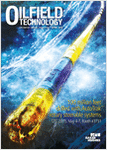 production sector, including:
production sector, including:
- Regional reports from Europe, North and South America, Africa, Asia and the Middle East.
- Case study articles detailing specific technology applications.
- International project and contract news.
- Keynote articles from major oil and gas companies, financial institutions and industry commentators.
- Technical articles focusing in-depth on the exploration, drilling and production of oil and gas.

Get Oilfield Technology Magazine FREE.

....................................................................................................................................................
Recommended: Free Technical / Engineering Magazine.
Join Chemical Engineer Rocks FACEBOOK Group...
Labels: Chemical Engineer, Magazine, Oil and Gas
posted by Kipas Repair JB @ 7:23 PM,
,
![]()
Shell Jobs for Post Graduates
Friday, May 01, 2009
Shell Malaysia is presently offering positions for chemical engineering with post graduates qualifications. There are about 9 positions that require those who have a MSc or PhD (but with less than 3 years of relevant working experience) in Chemical Engineering. The background that they are looking for:
PhD - with specialty in Biofuel
MSc - with majors in either Environment, Biofuel, Renewables
If you suite their requirement, please contact: Debbie Chan
Debbie Chan
Campus Marketing Advisor
Shell People Services Asia Sdn Bhd
Central HR - Recruitment
Bangunan Shell Malaysia, Changkat Semantan
Damansara Heights, 50490 Kuala Lumpur
Tel: +603 2091 2148
Fax: +603 2091 2602
Website: http://www.shell.com/careers
.................................................................................................................................................
Recommended: Free Technical / Engineering Magazine.
Join Chemical Engineer Rocks FACEBOOK Group...
Labels: Chemical Engineer, Jobs, Oil and Gas
posted by Kipas Repair JB @ 8:14 PM,
,
![]()
Lost Your Job? Oil Rig Work is Well Paid If You've Got What it Takes
Wednesday, March 25, 2009
When you get retrenched or loose your job, it's not that easy to find a replacement quickly. Rather than become desperate, why not consider a unique job? Oil rig work is far from boring and you can be earning a considerable amount of money within a few short years. Even without qualifications, you can still be in line to earn in excess of $40 000 dollars per year. And don't forget, you are usually only working for half of that time. So how do you know if you have what it takes to land a job on an oil drilling platform?
Your first port of call should be to gather as much information as you possibly can about the oil and gas industry. Despite the doom and gloom in most other sectors of the economy, the oil and gas industry play such a vital role in our everyday lives that the demand for petroleum products will continue to outstrip demand for a long time to come. Offshore drilling and surveying takes place across the globe, so you will be sure to find an area that you will enjoy. Don't forget though that oil platforms are normally way off shore and you will need to be transported there by helicopter.
That means that you won't be slipping ashore to enjoy the night life. You will be confined to the oil rig for the duration of your shifts which can be two to four weeks long. If you are the type of person that doesn't do well in cramped and sometimes uncomfortable conditions then this may not be the career for you. You will need the sort of personality that can adapt to changing conditions. You will need to get along with your fellow crew members for days on end so miserable individuals won't really be tolerated. If you are under 30 years old then your chances of getting a foot in the door are considerably better. No-one will tell you that, but it's a fact of life in the oil job sector.
As in any other job search process, you need to sell your skills and qualifications to the recruiters and human resource officers. Take the time to have your CV or resume professionally written up before sending it off to the various offices. You only get one chance for a first impression. Make sure that you highlight any maritime or navy experience and courses as these will push your CV to the head of the line. It also helps if you have completed courses in maritime safety and operations.
In the current economic climate, you still have an excellent chance of securing a job. Oil rig careers are lucrative and with the right skills and qualifications you could be earning an above average income in a very short space of time. So long as you have the personality, mental toughness and physical strength to endure weeks on end in an isolated and sometimes dangerous environment you stand a good chance of making a success of your oil and gas industry career. Successful employees are generally the ones who have the most knowledge of where to look and how to apply for oil industry jobs. Be sure to get the latest information about availability of position as information travels fast and you need to be in the "know" to have the best chance of securing your oil field job.
To find more information on how you can land a great job on an oil rig check out: job oil rig at Hunter Recruitment. You will find great resources to help you find a job in the oil and gas industry written by people who have actually worked on oil rigs themselves. Visit http://www.hunterrecruitment.co.za/petrochemical.htm for the latest jobs in the oil and gas industry.
Be the best chemical engineer you could be. Learn something about chemical engineering that's not inside your textbook. Subscribe to the content of this blog.
Labels: Chemical Engineer, Chemical Engineering, Oil and Gas
posted by Kipas Repair JB @ 10:07 PM,
,
![]()
Crude oil is getting cheaper but why isn't gas?
Saturday, February 21, 2009
When the petroleum price increase last year, many turned to liquefied natural gas and convert their cars/van/lorry to natural gas vehicles (NGV) because gas is relatively cheaper. But, now, in 2009, petroleum price has drastically and crazily reduced to a figure that was never been imagined last year. And as a direct result of that, the petrol/gasoline price has also reduced, making many people to smile. But what about those who own NGV? Are they equally smiling?
The natural gas price don't really follow the trend set by the petroleum. Wonder why? Read the following article to get the reason...
"Crude oil prices have fallen to new lows for this year. So you'd think gas prices would sink right along with them. Not so. The Associated Press reports that, for example, crude oil closed just under $34 a barrel, its lowest point for 2009. But the national average price of a gallon of gas rose to $1.95 on the same day, its peak for the year. The very next day gas went a penny higher. To drivers it sounds like a conspiracy. But it has more to do with an energy market turned upside-down that has left gas cut off from its usual economic moorings. The price of gas is indeed tied to oil. It's just a matter of which oil. The benchmark for crude oil prices is West Texas Intermediate crude oil. The price is used at the New York Mercantile Exchange each day. Right now, in an unusual market trend, West Texas crude is selling for much less than inferior grades of crude from other places around the world. A severe economic downturn has left U.S. storage facilities brimming with it, sending prices for the premium crude to five-year lows. But it is the overseas crude that goes into most of the gas made in the United States. So prices at the pump will probably keep going up no matter what happens to the benchmark price of crude oil. The recession in America has dramatically cut demand for crude oil, and inventories are piling up. So prices for West Texas crude have fallen well below what oil costs from places like the North Sea, Saudi Arabia and South America. Historically, West Texas International crude has cost more. So nobody bothered building the necessary pipelines to carry it beyond the nearby refineries in the Midwest, parts of Texas and a handful of other places. Now that the premium oil is suddenly very inexpensive, refiners elsewhere can't get their hands on it. So why not build more pipelines? Because investing billions of dollars over several years makes no sense when the prices could just flip a year from now to where they were before. At the same time, refiners have seen the same headlines as everyone else about job losses and consumer spending. They've slashed production just to avoid taking losses on gasoline no one will buy. Result: Higher gas prices."
Article as adopted from Processing Magazine.
Be the best chemical engineer you could be. Learn something about chemical engineering that's not inside your textbook. Subscribe to the content of this blog.
Labels: Learning Curve, Oil and Gas
posted by Kipas Repair JB @ 12:01 AM,
,
![]()
How Crude Oil Refined?
Friday, August 29, 2008
Do you know how crude oil is processed ore refined? If no, then I recommend you to check out this video. Even if you know, it's good to see it to learn other plants. It shows us how crude oil is refined. The video shows an American Refining Group, Bradford, Pa., which is the world's oldest and continuously operating refiner of Pennsylvania crude oil. Take a tour of the "Barrell House". It's like a 9 minutes technical plant visit. You don't see the oil but at least you learn something about the basic process. Perhaps, later we can have more of this type video technical plant visit to enrich our technical skills :) .
-----------------------------------------------------------------------
Convert You Car To Burn Water + Petrol = Double Your Mileage!
High Conversion, Few Refunds, Due To Huge Demand: Soaring Gas Prices Compel People To Save Gas!!! Popular D.i.y Watercar: Run Your Car Partially On Water, Reduce Emissions/Global Warming! Practical Free Energy Based On 1000s Of Real Cars Worldwide!!!
Do you like to receive FREE Technical and Engineering magazines? If YES, check out Chem-Eng.Tradepub.com.
Join Chemical Engineer Rocks FACEBOOK Group...
Labels: Chemical Engineer, Chemical Engineering, Chemical Plant, Learning Curve, Oil and Gas, Video
posted by Kipas Repair JB @ 6:49 PM,
,
![]()
3 of My Best Moments As An Engineer in the Oil and Gas Field
Thursday, August 28, 2008
As an engineer, I experienced a lot of sweet and enjoyable moment. I also did tasted some sad and bitter moments as well. I'm no longer experiencing them because now I'm no longer a practicing engineer. However, once in a while I still contact my fellow counterparts (engineers) and also visited few plants / projects under official duties as an academician / researcher / consultant, or as a member of the Institution of Engineers (IEM). This is to ensure my continuous engineering education and training relevant to the industry needs.
Reflecting to my passed experiences, I would like to share 3 of my sweet/best moments as a project engineer in the oil and gas field...
1. Visiting and working at offshore platforms
This is certainly one of the most valuable experience I ever have. I have visited and worked in a number of offshore plants which consists of Bekok C, Bekok A, Tiong A, Dulang B (mother platform), Dulang A, C and D (Satellite platforms), Angsi and a few more that I have forgotten. All of those platforms are located at offshore Kerteh, Trengganu. The fastest transportation is by helicopter. It took between 1 to 2 hours to reach the offshore platforms, depending on their distance. Taking a small ship/boat will took longer hours, more than 8 hours depending on the distance. Well, you can also swim if you want... but it may take you 2 -3 days...if you are not tired... ;) just kidding...
Besides performing my duties to test some of our chemicals performance with the crude oil, we experience the best of offshore life. It will be too long to jot down all the offshore excitements... However, I'll reveal a few of them...
Besides the good money, we also get very excellent 5 Star meals. I can consume basically whatever I want to eat or drink!!! For breakfast, I can have Nasi Lemak (Coconut rice), fried noodles, cereals like Coco Crunch, Corn Flakes, etc, pan cakes, toasted bread etc... I can have various options for beverages such as tea, coffee, milo, fresh milk, soya bean, fresh orange, apple juice, various kind of other juices, carbonated drinks, basically anything...accept alcohol...
for lunch or dinner, we are served with both traditional dishes and western dishes... for dessert, we can have various types of them which include: apple pie, ice cream, ABC, various cakes.... What more can I asked?!!! I'm enjoying my appetite and I put on my weight.
At night, after having dinner, we relaxed and watch TV/astro or movie... We also played snooker or ping pong or sometimes exercised at the gym. When we're exhausted, we just relaxed, read newspapers, or sat at the OSIM massage chair...
Do you think we washed our own coveralls / clothes / socks / underwear there? Hmm.... nope... We just put them all in a basket outside of our room in the morning or afternoon. At the end of the day, those things are well folded nicely on the basket :) . Cool stuff...isn't it?!!
However, one of the best moments being offshore is >>> enjoying the sunset on the boat while traveling from satellite platform to mother platform... the scenery is sooooo beautiful that I won't ever forget... What an experience...
2. Visiting and working at onshore oilfield
I have zero petroleum engineering knowledge and that's why I cannot really imagine how an onshore oilfield looks like (I know how the offshore platforms shape). My previous boss asked me to go to Banjarmasin, Kalimantan, Indonesia for a week to learn and assist our principal to conduct bottle test at Pertamina-Talisman onshore oilfield. The funny part is I acted as an Indonesian citizen to avoid bureaucracy complication. I have to adjust my slang to converse in standard Indonesian language and in meetings, I kept quite to avoid the managers and officers detect my true nationality.
It took me almost 2 days to travel to the oilfield. The route was: Johor Bahru - Batam - Jakarta - Surabaya - Banjarmasin - Tanjung (this is the location of the onshore oilfield). There, I noticed that the overall set up to pump oil from the earth is very simple compared to the offshore platform. What is required is only a "donkey" - that's what they call that type of pumping facility to pump out the petroleum. We took samples from it and tested the samples with our demulsifier and descaler chemical resins.
Was there any problem? Well, there's one but luckily it wasn't really a problem that we could not handle. It was almost like a threat. Want to guess? One of the officers there clearly asked for money. Without hesitation, he repeatedly asked for money day after day in order to let us have the project. Our team have anticipated that and we have our own people to handle him - not by giving him the cash he wanted, but ....
Overall, it was a very interesting experience for me working at Pertamina-Talisman... and one of my sweetest moment.
3. Traveling - Amazing Race Style
One of my non-engineering assignment was to collect a number of chemicals from our regional principal in Jakarta, Indonesia. As my wife had just delivered our 2nd baby that time, I don't want to spend a night in Jakarta. So, I planned to make a day trip from Johor Bahru - Jakarta - Johor Bahru.
As early as 7 am in the morning, I reached Stulang jetty where I took a boat to Batam Center. Took a cab from Batam Center to the airport. I took a flight to Jakarta, met my principal, relaxed a while. After that, I hunted for the earliest flight back to Batam. I said to the custom that the bottles I'm having contain herbal medicine (in actual it contains specialty chemicals). After landed at Batam, I took another taxi to Batam Center. Then I took a boat to Stulang jetty. Guess what? At 7pm, I was in Mcdonald Taman University, Skudai, Johor taking my first official meal of the day. It was quite an amazing experience, traveling such a distance below 12 hours - via land, sea and air!!!
Well, those are basically 3 of my best moments as an engineer in the oil and gas field. I have more wonderful moments but let's just have those above for now first. I liked the job very much and I'm very excited traveling here and there, locally and internationally. What about you? Maybe you can share some of your best moments...?
My very related post on the oil and gas arena, checked them out...:
Photo of the Day - Troll Platform
Photo of the Day - Safe Scandinavia
Photo of the Day - Buzzard Platform
Going Offshore
Going Offshore II
Going Offshore III
Going Offshore IV
----------------------------------------------------------------------------------------------------------------- >>> FREE World Pump Magazine!!!
>>> FREE World Pump Magazine!!!
Sales Training For Engineers & Techies.
Manuals On How To Sell Technical Products And Services, Find New Clients Or Hire An Effective Technical Salesperson.
Do you like to receive FREE Technical and Engineering magazines? If YES, check out Chem-Eng.Tradepub.com.
Join Chemical Engineer Rocks FACEBOOK Group...
Labels: Chemical Engineer, Oil and Gas
posted by Kipas Repair JB @ 8:50 PM,
,
![]()
PCIC Europe 2008: The Essential Petroleum and Chemical Conference For Engineers
Saturday, May 17, 2008
Following is an email that I received from the EngineerLive.com newsletter. Just wanna spread it out loud...
Weimar, Germany, June 10-12: Petroleum and Chemical Conference
Can you afford to miss a conference that could affect the way you use electrical and automation solutions for years to come?
At PCIC Europe 2008, you can learn from the experience of engineers like yourself who have installed, implemented and used electrical and automation equipment in real applications in your industry. Register now at:
http://www.pcic-europe.eu/g3
With the emphasis on the practical, a number of papers will be presented at the conference, by experts from end user companies, engineering companies, manufacturers, regulators, certifying bodies and international standardization organizations. See the latest agenda at
Speakers will be available for questioning, making PCIC Europe a place for end users to air their views and influence the way your industry implements and uses electrical and automation equipment, now and in the future.
As well as the programme speakers, there will also be a guest appearance by Dr Bernard Bulkin, a leading expert on climate change who will give a presentation entitled, 'What do Engineers need to know about Sustainable Development?'-go to http://www.pcic-europe.eu for more information on this.
His presentation will examine the core issues of sustainable development and how they can be applied to engineering design, the importance of systems thinking and the education of the next generation of engineers.
Join us in Weimar, Germany, from June 10 -12, Register now at:
http://www.pcic-europe.eu/g3
--------------------------------------------------------------------------
Get Your Dream Offshore Job - Offshore Oil Industry Resume Distribution Service And Employer Services
Labels: Chemical Engineering, Oil and Gas, Seminar
posted by Kipas Repair JB @ 1:07 AM,
,
![]()
Offshore Life Video
Saturday, May 03, 2008
For those of you who haven't been offshore but want to have a sneak peak on how it feels traveling and working there, check out the following videos. They are very interesting and it certainly reminds me on those early days when I used to go offshore.
In this first video, you might wander why the helicopter is not landing yet? Why it is circling the platform?
The second video display some view on how the life begins when you start the journey from the main land, fly in a helicopter and land at the platform. It's really amusing.
This 3rd and final video really shows the life as a citizen of an offshore platform. You can see the sunset (oh yea..i remembered that, and I love that moment), yea.... I traveled on a Sikorsky 76 as well, check out the living cabin, the drilling process. It also shows my favourite spot which is the cafeteria where we are served with fantastic tasty foods while watching TV.
--------------------------------------------------------------------------
Get Your Dream Offshore Job - Offshore Oil Industry Resume Distribution Service And Employer Services
Labels: Chemical Engineering, Oil and Gas
posted by Kipas Repair JB @ 12:11 AM,
,
![]()
Baker Hughes Cathodic Protection Tool
Monday, April 14, 2008
If you are in the pipeline and gas technology, you might want to check out this new innovative Cathodic Protection Tool. Previously, when I was in the oil and gas industry, working with a local servicing company, we used cathodic protection to minimize corrosion, but not like this piece of equipment which can be used from the internal part of the pipeline. For those of you who are not familiar with Cathodic Protection, check out about it HERE. The following information was adopted from Pipeline and Gas Technology Ezine.
Baker Hughes Pipeline Management Group (PMG) has introduced the CPCM in-line inspection (ILI) service, the industry’s first method of assessing the effectiveness of a pipeline’s cathodic protection system from inside the pipe. Now pipeline operators can utilize an ILI tool to proactively identify gaps and flaws in their cathodic protection systems before corrosion damage can occur. The CPCM service utilizes a smart pig traveling through the line, performing high-resolution cathodic protection measurements of the entire pipeline, minimizing valuable time and resource requirements. There are no gaps in the data stream due to rough terrain, lakes or streams, city streets and other inaccessible areas, and the quality of the data is maintained regardless of right-of-way conditions. The system can also be used for assessing offshore pipelines.
Labels: Oil and Gas, Technology
posted by Kipas Repair JB @ 9:34 PM,
,
![]()
Me and My White Safety Helmet
Thursday, December 27, 2007
When i was a student, I wonder how would it feel to become a chemical engineer? How does it feel to wear the safety helmet, that will made us look like a real cool macho engineer.
In the lab at the university, we just put on the white lab coat and not the safety helmet. After my first degree, I continued with my masters degree and still, I have not yet put on the safety helmet. I wonder when will I own and wear the safety helmet. After completing my masters degree, I joined a local oil and gas servicing company and directly traveled to the site on my first day at work. I was supplied not only with the safety helmet that I wanted to put on all this while, but also jacket, safety boot, coverall, cotton glove, leather glove, goggle and 3M half face mask. On top of that, I have to manage a group of people who were about 5-10 years older than me to blend some specialty chemicals. Under the hot shiny sun, I have to wear the safety helmet. That time, I wished I don't have to wear the safety helmet with the goggle attach on top of it (The goggle need to be applied while blending or pouring the chemicals). I don't feel like the safety helmet is protecting me from anything. After all, there's nothing going to fall onto my head at the side. It was really heavy and I felt like my center of gravity is at my head!!!
After completing my masters degree, I joined a local oil and gas servicing company and directly traveled to the site on my first day at work. I was supplied not only with the safety helmet that I wanted to put on all this while, but also jacket, safety boot, coverall, cotton glove, leather glove, goggle and 3M half face mask. On top of that, I have to manage a group of people who were about 5-10 years older than me to blend some specialty chemicals. Under the hot shiny sun, I have to wear the safety helmet. That time, I wished I don't have to wear the safety helmet with the goggle attach on top of it (The goggle need to be applied while blending or pouring the chemicals). I don't feel like the safety helmet is protecting me from anything. After all, there's nothing going to fall onto my head at the side. It was really heavy and I felt like my center of gravity is at my head!!!
Despite of that, I felt sort of proud to display my safety helmet on the rear dashboard of my car and let everybody see it. At home my son will take my helmet and act as an engineer, just like his father. I don't know whether he wants to be an engineer too. It's totally up to him. Few years after servicing the oil and gas industry, I get a new job as a process engineer in a refinery plant (in the oils and fats industry), I still put on the safety helmet. Now, it is different. I don' have to put any accessories on the safety helmet. It is lighter. I have to wear the safety helmet which is white in colour as soon as I enter the factory. White safety helmet differentiate executives from supervisors, technicians, operators, and others which put on a yellow safety helmet. In different places, safety helmet colour coding is applied. Some may have blue colour representing a safety committee or safety officer etc.
Few years after servicing the oil and gas industry, I get a new job as a process engineer in a refinery plant (in the oils and fats industry), I still put on the safety helmet. Now, it is different. I don' have to put any accessories on the safety helmet. It is lighter. I have to wear the safety helmet which is white in colour as soon as I enter the factory. White safety helmet differentiate executives from supervisors, technicians, operators, and others which put on a yellow safety helmet. In different places, safety helmet colour coding is applied. Some may have blue colour representing a safety committee or safety officer etc.
Wearing safety helmet in the plant is very important. The plant is really big and there are a lots of equipments. I lost track of the number of occasions where I knock my head on something. Sometimes, my head hit a metal bar, a globe valve, a lowered roof and others which I could not recall. Luckily I have my safety helmet to protect my head and brain! I could not imagine the state of injury I'm going to face if not protected by the safety helmet.
•Chemical Engineering JOBS in Asia
•Chemical Engineering JOBS in Europe
•Chemical Engineering JOBS in Malaysia
Earn $$ with WidgetBucks
Labels: Accident, Chemical Engineer, Jobs, Learning Curve, Oil and Fats, Oil and Gas, Plant Shutdown, Problem
posted by Kipas Repair JB @ 8:49 PM,
,
![]()
HAZMAT Team In Action
Friday, December 14, 2007
This video reminds me on my Hazmat experiences while I was in the oil and gas field a few years back. Hazmat is not ONLY required during/after chemical explosions or biological warfare but also when dealing with very hazardous materials. For my case, we dealt with oil and gas with high mercury content, which is above the minimum exposure level to human (Mercury is very dangerous!). Hence, we need to really protect ourselves from mercury contamination. The following video shows an example of a group of people being trained for Hazmat. You can see people with coverall going through few steps to be cleaned. That's part of the buddy system which requires other people to help us get cleaned up. In addition, a Hazmat team must be well organized so that the activity will be smooth and well coordinated.
Labels: Accident, Fire, Health, Oil and Gas, Problem
posted by Kipas Repair JB @ 9:46 PM,
,
![]()
Oil and Gas - Global Refining Updates
Sunday, November 11, 2007
I apologized for not updating this blog for a week. I'm been pretty busy the past few days. By the way, I received an email last week about being constantly updated with the global refining industry and it's associated rapid transformation. It's very informative and good reference if you're in the oil and gas arena. This is a paid subscription and you need to ask from their expert for more information regarding the content or subscription. Check it out. Following is part of the email that they sent to me. Dear Energy Industry Colleague, How much of new refining capacity will actually materialize? Hart Energy Consulting's World Refining & Fuels Service provides a single reference source on crude supply and quality, regional petroleum product demand and refining capacity and configuration trends; all provided on five global regions. SUBSCRIBE TODAY AND KEEP YOUR COMPANY AHEAD OF THE CURVE! For more information about the 2008 upgrades to the outlook, including questions about price and ordering, contact one of our experts or simply reply to this email: Frederick L. Potter Terry Higgins
World petroleum product markets are rapidly transforming. Rising crude prices, strong demand for cleaner fuels, and increasing pressure on refining capacities, make strategic planning for the next decade challenging.
What will be the role of biofuels and alternative fuels in the marketplace?
How will petroleum demand increase and which regions will provide the supply?
This expanded outlook includes the following new sections and analysis:
The Outlook is available in many forms to best suit your individual information needs: from a 500+ page hard copy report to a CD and full online access to the analysis, the data comes with 24/7 export support from our knowledgeable staff for on-site presentations and discussions.
1-703-891-4801
fpotter@hartenergy.com
1-703-891-4815
thiggins@hartenergy.com
Labels: Learning Curve, Magazine, News, Oil and Gas, Research, Review, Study
posted by Kipas Repair JB @ 4:04 PM,
,
![]()
Dipping Tape and Measuring Oil Tonnage
Friday, November 02, 2007
In oil industry or oil plant, there are a lot of oil storage tanks available. It is vital for the oil company to know their daily oil stock simply because they are in the oil business. Therefore, they need to measure the oil volume and further work out its tonnage. They need to know the exact volume of oil and to do that there are various methods. One of the traditional method is by using a dipping tape.
What is a dipping tape? Sorry, I could not find a suitable and proper definition for it. My own definition would be a tape made of from stainless steel (can be other material as well) and has some sort of calibration along it (up to 15m, or 20m, it depends on your tank height) and it's used to measure the ullage in a storage tank (filled with oil/liquid). Does anybody have a suitable definition of dipping tape?
definition would be a tape made of from stainless steel (can be other material as well) and has some sort of calibration along it (up to 15m, or 20m, it depends on your tank height) and it's used to measure the ullage in a storage tank (filled with oil/liquid). Does anybody have a suitable definition of dipping tape?
I guess the next question from you will be: What is ullage?
The amount which a tank or vessel lacks of being full.
is the empty space present when a shipping container is not full.
The space in a tank not occupied by its contents. Used as a measure of storage space still available.
I hope the ullage definition would give you some idea on the concept.
For each storage tank, there'll be some sort of calibration table. From it, we can know what is the volume of oil at certain height. The tank height is also recorded in the calibration table. So, in order to know the volume of oil, we substract the tank height from the ullage (which we get from the dipping tape measurement), and we shall get the oil level height. From there, we can already get the volume of oil and work out the tonnage (with the temperature reading available).

Labels: Equipments, Oil and Fats, Oil and Gas
posted by Kipas Repair JB @ 12:00 AM,
,
![]()
Some Updates + Picture of the Day
Monday, October 01, 2007
I apologize for not updating according to the frequency I'm supposed to. I was really busy at work, packed with family events and gathering, and attached with some religious commitment in this fasting month (for Muslim).
I also owe you guys the updates on the "Disappointing New Plate Heat Exchanger" story that I posted 2 weeks ago. I'm working on the post and I shall get you guys updated by this week.
At work, the job seems never ends. Today, an internal audit took place for my plant. In brief, I can say the audit went fine and no non-conformance (NC) was charged. We only have one observation which was not really a big deal. However, from the audit, I learned a lot of new things. For me, all audit process is unique and will always give me new experiences.
As far as the plant is concerned, last week everything was silky smooth. We met daily production target capacity and produced on-spec quality. However, by the end of the week, something went wrong which made the flow rate slower. We have predicted this and we are working on some solution for it. Can you guess what made the flow rate slower? Well, have fun guessing...
The photo below is not really related to the story above or to my current job scope. I found this photo while browsing the net and I thought it's worth sharing with you guys. To tell you the truth, I'm not sure which platform and where the location is. It must be a really terrifying and scary moment if we are on that platform. Anybody have a clue where, when and which platform is this?
Labels: Learning Curve, Oil and Gas, Picture of the day, Problem
posted by Kipas Repair JB @ 11:25 PM,
,
![]()
The Author

I’m Zaki. I used to be a project, process and chemical engineer. Few years ago I successfully became a Chartered Engineer (IChemE) and Professional Engineer (BEM). I'm now employed as a chemical engineering educator/researcher/consultant. Hope you like reading my blog. I welcome any feedback from you. My email: zaki.yz[alias]gmail.com. TQ!




